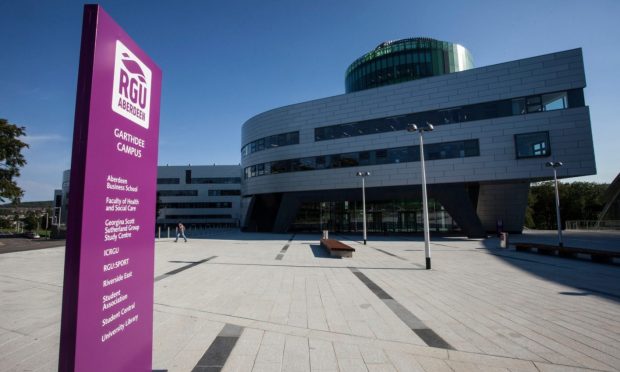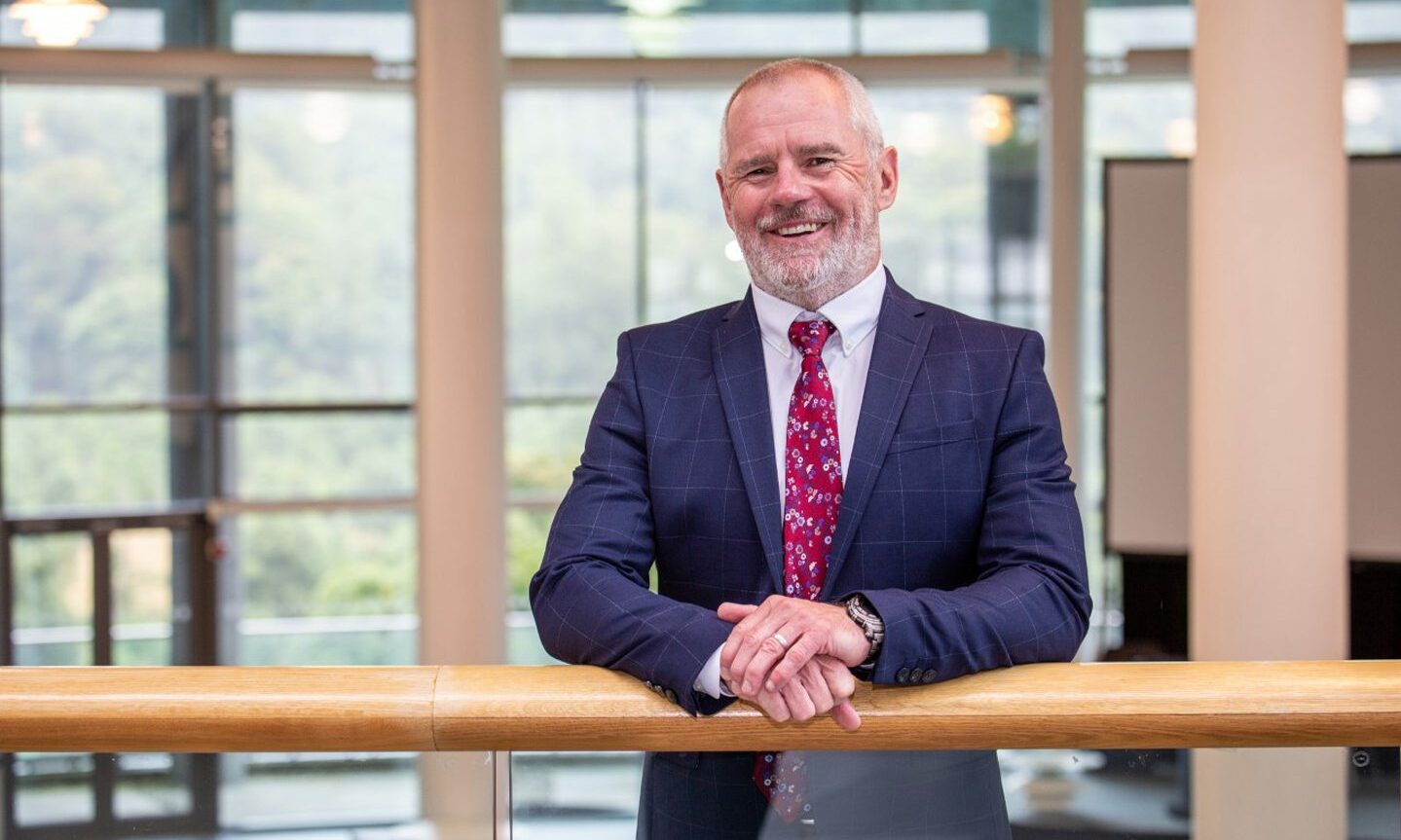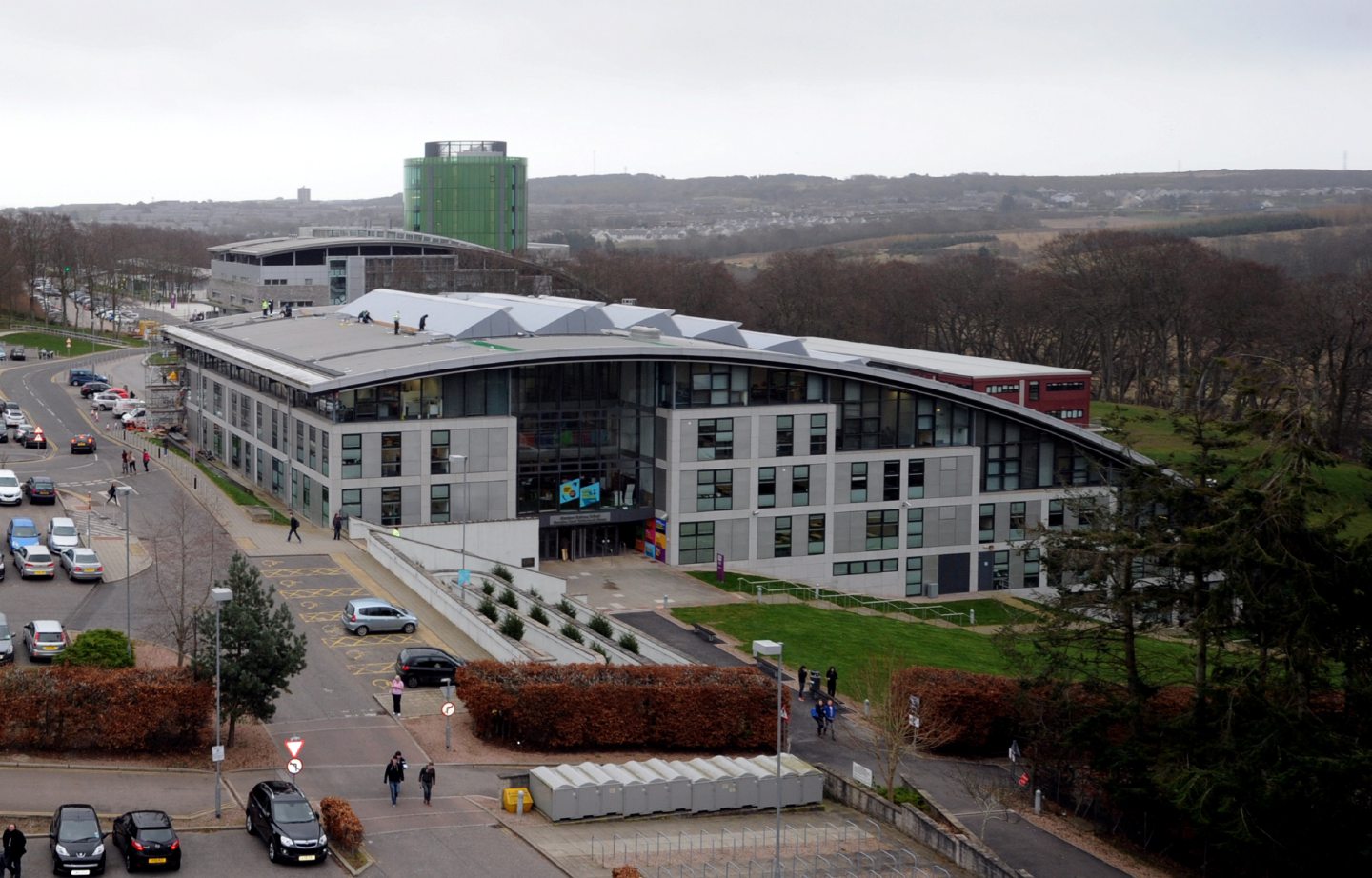As many as 135 staff at Robert Gordon University face an anxious Christmas – as the institution launches a redundancy consultation that will roll into January.
RGU is scraping to save millions as it faces “significant financial challenges” – and has already had 130 staff leave through voluntary severance since cost-cutting was launched last autumn.
But union bosses are warning this new swathe of voluntary redundancies could affect how the university operates.
Around 100 of those at-risk work in the RGU’s professional support services department.
‘Surprising lack of information’ for Robert Gordon University staff
Principal Steve Olivier took no questions this afternoon as he announced the latest wave of RGU’s Finance Transformation Projects
Unison’s RGU convener Colin Jones says staff are currently in the dark, until the university’s individual schools make the redundancy plans clear.
He told DC Thomson’s Original 106 FM it was “devastating” – and made all the worse by the consultation dragging into the new year.
Mr Jones said: “I was surprised at the lack of information in the meeting.
“The principal spoke at a town hall meeting but it was all on the highest level terms with very little detail.
“It was disappointing he wasn’t able to take any questions but that’s because he wasn’t prepared to go into any of the detail until schools and departments met with staff.
“From one perspective that’s maybe understandable but we did hope for more at the town hall.”
An RGU spokesman told us many at-risk staff would be offered redeployment, meaning they don’t expect the number of people losing their jobs to be the full 135.
Any hint of compulsory redundancy could lead to industrial action
Members of Unison, which represents professional and support staff, have already indicated they would take industrial action if RGU looks to make compulsory redundancies.
That is not yet on the table, but Mr Jones will be going over the business cases with a keen eye.
“We will try to reduce and remove any compulsory redundancy element and reduce and remove the numbers involved – this is a huge number and it’s very concerning.
“We are very concerned about the impact this number of job losses is going to have on the service the university can provide.”
Mr Jones added: “There’s a hugely disproportionate impact on professional support staff in these wide-ranging proposals for several different schools and internal departments.
“We are very concerned it will mean we can’t provide an appropriate service for staff and students.”
Why is Robert Gordon University taking such drastic measures?
Soon after the staff meeting, Mr Olivier issued a statement, telling us: “Like many universities across the UK, Robert Gordon University continues to face significant financial challenges due to a steep drop in international student enrolments, a sustained decline in public funding, and inflationary cost pressures.
“The proposed changes will future-proof RGU as an institution.
“It’s increasingly important that we continue to act and respond to the external factors to ensure our long-term financial sustainability and mitigate against ongoing sector uncertainty.”
The principal and vice-chancellor added: “I maintain utmost confidence in the university and our collective future success.”
Union: Robert Gordon University’s budget gap is getting bigger
The university launched its finance transformation project last autumn and has so far slashed around half of its original £18.8 million savings target.
However, Unison’s Mr Jones said staff were told today that the blackhole had grown to around £22m.
Predominantly savings have been achieved by staff taking voluntary redundancy, though more than £4.6m has been clawed back through “various operational efficiencies”.
Collective consultation is due to end in December – with the spectre of individual consultation with at-risk staff hanging over the festive period.
Scottish Conservative MSP Liam Kerr, said: “With demand for university places continuing to rise, the prospect of reducing staff and stopping courses is a hammer blow to the future of our young people, our workforce and employers.”
Read more:





Conversation